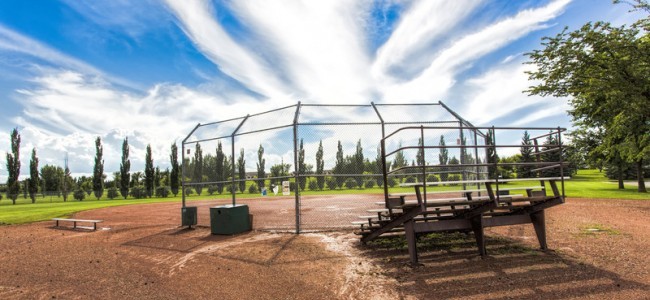
Baseball leagues all over the country can easily lose their baseball field. A field of dreams can easily become a field of nightmares. How a league legally accesses its field is often the difference between a league that will survive and a league that is prone to failure.
Fields at Risk
Fields are hard to come by and even harder to keep with the constant pressure of real estate development efforts that threaten to undermine any tenuous legal agreement between the landowner (often a local government body, but sometimes a private individual) and the local baseball league.
Here’s a story about fields in Florida that are going to be closed by the municipal owner in order to build an office complex. Here’s a story about a private owner that wants his baseball field land back in order to build apartments on it.
Owning a Field is the Best Option
It goes without saying that the best way to keep a baseball field is to own it. If a league owns its field, it controls who is allowed to play on it.
Ownership is important too if you want to prevent field sharing with other sports which can create overuse such as is reported here.
Another advantage to ownership is that an organized non-profit league could well have its fields removed from the tax rolls to exempt it from paying property taxes.
It might be expensive to buy your own field, but it is doable with planning. Read about this Virginia league that raised $1.2 million over the last twenty-five years to purchase its fields.
Leasing the Field Works if Done Right
If a league isn’t able to own its baseball fields, it should at least have a lease, preferably a long term lease. The longer the lease, the better it is for the league. I’m talking in terms of decades. The league doesn’t want to make improvements to a property just to see them revert to the landlord at the end of short term lease. A long term lease gives the baseball league tenant property rights and a well drafted one will protect the league for generations.
All leases from local governments should contain a clause in them that grants “exclusive” rights to the league to use the field for at least the baseball season. This clause will allow a league to prevent access to a field by rival leagues searching for a field.
Such a lease arrangement saved a New Jersey league from being undermined by a group of travel teams.
An exclusive lease agreement also provides another benefit. It provides political cover in the case the landlord happens to be a local government.
Say a rogue team or league is trying to access a community field. The local government’s hands are tied with a lease agreement and it can easily side with the tenant community program. I can hear the officials say to the rogue league or team: “Hey, I wish there was something we could do, but we have a lease agreement with the community program that runs until the end of time.” A local government landlord may, of course, try and pressure the community program to let others access the field, but a well crafted lease agreement will trump that effort.
Steer Away From Field Use Arrangements
Leagues that have no property rights in their fields through a lease or other means are at the most risk. These leagues often pay “field use” fees to their local governments to play on park land. And these fees can increase substantially in any given year as these leagues may have no written agreement limiting their rise and exist year-to-year at the whim of politicians faced with budget shortfalls.
Here’s a story about field use fees for a league that suddenly increased from $9,800 to $24,000 per year. That’s a huge increase that could sink a league.
Keep in mind there are many leagues out there that lease their fields for a nominal sum per year ($1.00) from a local government in exchange for providing recreational opportunities for residents.
Not only is there an uncontrollable cost issue that will always linger over a league with a field use arrangement, but a league with this arrangement might easily find itself in competition with other sports teams or leagues at any time.
Often times, field use fee arrangements are non-exclusive meaning that a league competes with others for use of the same field. That sounds okay on paper, but in reality this causes headaches. Trust me, conflicts and finger pointing are forever with this arrangement.
In Braintree, Massachusetts, it seems some people were upset with how their Little League board was conducting its affairs. They complained to Little League corporate who, in turn, recommended local governance changes. So what did the board do? It decided to affiliate with Cal Ripken instead. But now the complaining group has formed it own Little League and are competing for field time with the new Cal Ripken League for use of the same fields. Without a lease, the mayor has found himself in the middle. You can read an article about this here.
Though I have an opinion about what’s going on in Braintree, the important thing to take away from all this for the purposes of this article is that there would be no open dispute if either the Little League or the Cal Ripken League had a proper lease for the fields with Braintree.
Finally, a field use fee situation also puts a league into a position where the fields could be sold or redeveloped at any time by the owner without any recourse.
If a league can avoid a field use fee arrangement, it has a much better chance of surviving long term.
My upcoming novel, Saving Babe Ruth, is a story about a war over a baseball field. Click here to read more. It’s based on a true story and its set to be released in 2014. Sign up to be on my mail list for alerts on more blog posts, the novel, or special offers. Get ready for Saving Babe Ruth!

